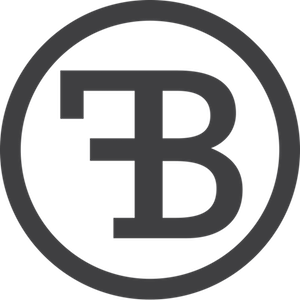Time: 3.12.2021 at 14-16 EET
Webinar: co-organized by Faktabaari EDU & Stanford expert group, with contributions from Critical & FINSCI projects. Hosted by Heureka and co-sponsored by Faktabaari & US embassy
Target audience: LUMA network, Finnish National Agency for Education, researchers, science journalists, teachers, and other Faktabaari & EDMO NORDIS stakeholders in Finland and abroad
Key words: science education, digital information literacy, education policy, lateral reading, strategic ignoring, critical thinking, educators, social media, internet, trust, democracy, critical reading
14.00 – 14.05 Welcome to Heureka
Mikko Myllykoski, CEO
14.05 – 14.15 Welcome to Faktabaari EDU
Mikko Salo, Faktabaari
14.15 – 14.30 Digital Information Literacy (DIL)
Kari Kivinen, Faktabaari EDU
14.30 – 15.00 Keynote: Education for a “Post-Truth” Society: The Contribution of Science Education
Jonathan Osborne, Stanford University, the chair of the Teaching Critical and Evaluative Thinking in Science expert group.
15.00 – 15.15 CRITICAL project presentation
Carita Kiili, Tampere University
15.15 – 15.30 FINSCI project presentation
Kirsi Pulkkinen, Finnish Science Centre Association
15.30 – 15.45 Q&A session
Moderation, Kari Kivinen
15.45 – 15.50 Wrapping up
Mikko Salo
*Teaching Critical and Evaluative Thinking in Science project has been led by Professor Jonathan Osborn from Graduate School of Education, Stanford University. Bringing together an international group of experts it has explored how science education should respond to the challenges posed by the abuse of scientific information and evidence in a ‘Post-Truth’ Society. In its work it has sought to identify both the generic tools that are important and those which are specific to science that students need to be introduced to and developed in elementary, secondary and undergraduate education. Specifically, what cognitive capabilities and knowledge do students need to address the challenges posed by misinformation and disinformation about science on the internet. It will argue that current science education must address this issue as it is central to restoring trust in science.
For more information: mikko@faktabaari.fi & kari@faktabaari.fi
#Faktabaari @Faktabaari @FactBar
Background on projects & speakers:
Professor Jonathan Osborne, Stanford University (education), Chair of the Teaching Critical and Evaluative Thinking in Science expert group*.
Jonathan Osborne’s research focus is a mix of work on policy and pedagogy in the teaching and learning of science. In the policy domain, he is interested in exploring students’ attitudes to science and how school science can be made more worthwhile and engaging - particularly for those who will not continue with the study of science. In pedagogy, his focus has been on making the case for the role of argumentation in science education both as a means of improving the use of a more dialogic approach to teaching science and improving student understanding of the nature of scientific inquiry. Some of his extensive work can be found on the website: http://scientificargumentation.stanford.edu/
Faktabaari EDU for Digital Information Literacy (DIL)
PhD Kari Kivinen, the Education Outreach Expert of the EUIPO Observatory, member of the Commission expert group on Tackling disinformation and promoting digital literacy through education and training, Teaching Critical and Evaluative Thinking in Science project* and the lead of the Faktabaari EDU.
@Kari_Kivinen
Mikko Salo, Faktabaari Founder, EDMO NORDIS executive committee member, Former member of independent EU high-level expert group on fake news and online disinformation
@mikkovsalo
2 Strategic Research Council LITERACY-programmes
Critical Project The Critical project aims at supporting children’s and adolescents’ (aged 10–17) critical reading skills needed in the internet era. The project examines children’s and adolescents’ skills to critically evaluate and interpret online texts, diagrams, and social media messages. It also seeks to understand factors that support learners’ critical reading development. This knowledge is utilized in developing and testing engaging learning materials and tools to support educators in their work.
Carita Kiili is an Academy Research Fellow at the Faculty of Education and Culture, Tampere University, Finland. At the moment, she works on a 5-year project called “Educating Critical Online Readers” funded by the Academy of Finland as well as on the Critical-project. In the projects, she develops and tests methods to assess and support students’ critical online reading skills. She also leads the Educating for Future Literacies Research Group.
@ckiili
FINSCI - Fostering Finnish Science Capital
FINSCI is a research project focusing on investigating and fostering Finnish science capital. The amount of knowledge is constantly increasing, but at the same time it is becoming more and more difficult to recognize what information is reliable and what isn’t. In order to cope with the problems and phenomena that affect our daily lives, we need to develop our abilities to understand and evaluate scientific knowledge. FINSCI aims to address this need. Besides creating new knowledge, FINSCI focuses on developing community science practices and public science interaction in order to increase the accessibility of science. Collaboration between the consortium partners and Finnish residents aims to include especially those individuals who are currently not reached by traditional science communication.
@FinSci
Kirsi Pulkkinen is the Secretary General of the Finnish Science Centre Association and a postdoctoral researcher in the FINSCI project. She studies the work methods that science centres use to enhance science capital and co-develops new ways of increasing equity and social access to the world of science with currently underserved groups and science centre staff.
@PulkkinenKirsi
The visit of Professor Jonathan Osborne is part of an Faktabaari EDU independently initiated exchange of US and Finnish media and information literacy best practices co-funded by Avoin yhteiskunta NGO and US Embassy in Helsinki grant.

